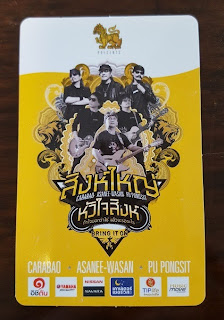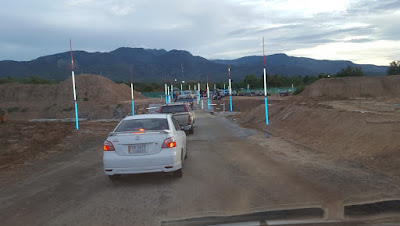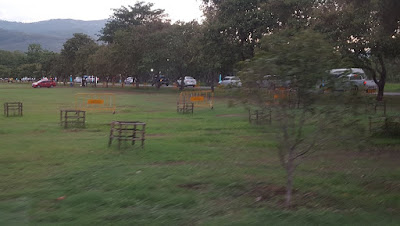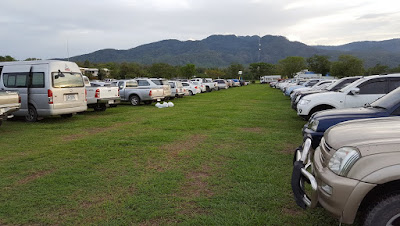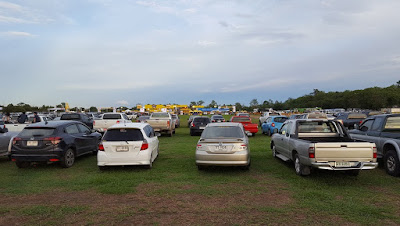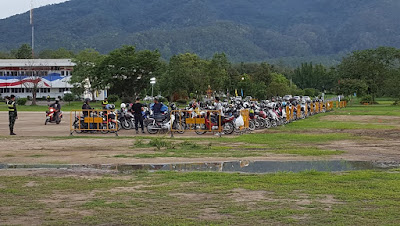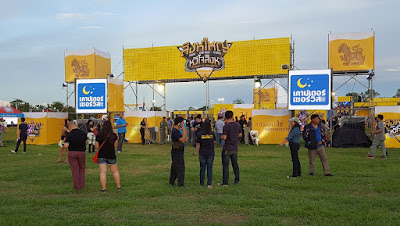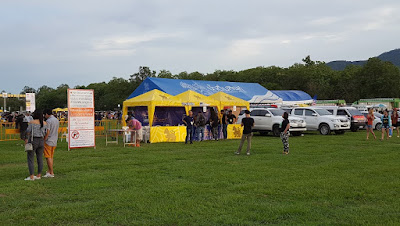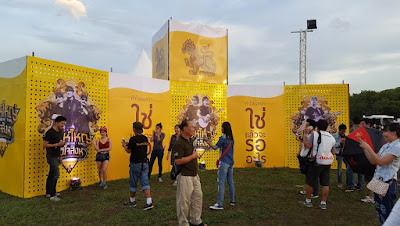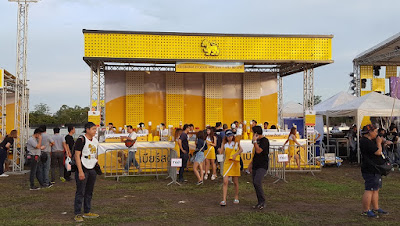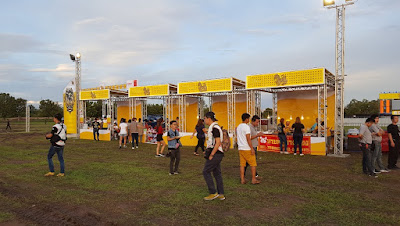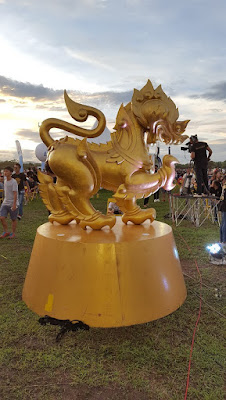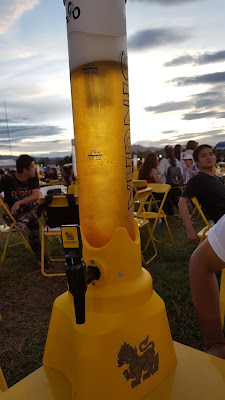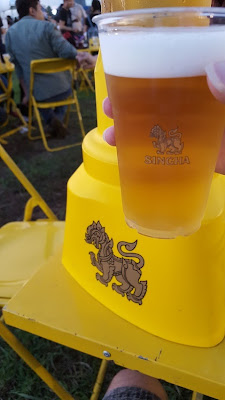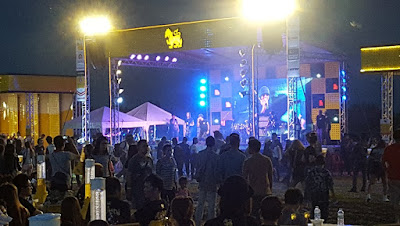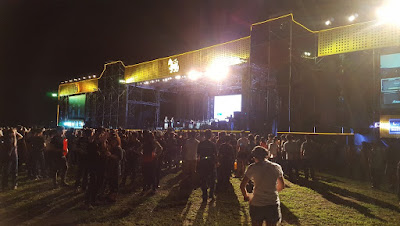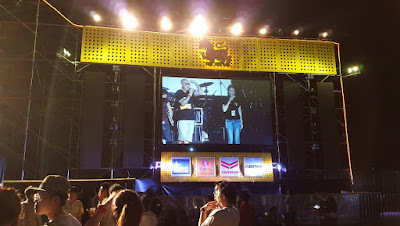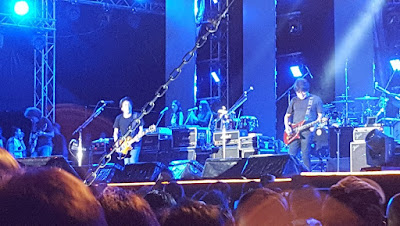About Singapore
English or Singlish
Foreigners in Singapore
often have a hard time understanding Singaporeans when they use Singlish, or
Singapore English, during informal settings, e.g. gatherings with friends and
family. This is because, besides being grammatically incorrect, a Singlish sentence
is often constructed with words from more than one language (English, Chinese,
Hokkien, Malay etc). Here is an example of a Singlish sentence:
Yesterday I was so sian (meaning bored in Hokkien) at home so
I went out. But it was so hot outside that I tak boleh tahan (meaning cannot
take it or cannot endure in Hokkien).
Adding to the confusion is the fact that colloquial words and
terms are added to the mix as well. As such, it is impossible for a foreigner
to understand Singlish without spending a bit of time and effort into studying
it.
About Thai English
Thai English poses a similar problem to foreigners.
Foreigners to Thailand
would have usually have their first encounters with Thai English from Thais in
the service industry such as taxi drivers, waiters, street vendors, sales
assistants etc. Although many Thais can speak English to some degree,
understanding what they say or getting yourself understood is often not easy
(this is referring to Thais in general and excludes those who have really
studied the language properly or in depth). This is because Thai English is not
quite the same as English in the USA
or the UK
– grammar rules are often not observed and many English words are pronounced in
a uniquely Thai way.
For any visitor to Thailand, it will soon become
apparent to them that they have to speak English with a Thai accent in order to
make everyday Thais understand what they say.
Tones
Thai is a very musical language and some foreigners have
likened it to bird-song. Like Chinese, Thai is a tonal language, which means
that a word will take on different meanings depending on the tone that is used
to pronounce it.
The most famous example is perhaps the Thai phrase mai mai
mai mai mai. To many of us, this looks like a meaningless string of five
identical words. However, when these words are pronounced using the appropriate
Thai tones, they suddenly take on meaning “new wood does not burn, does it?”
Thais speak largely in a monotone when speaking English
(though there may be tonal changes in the final syllable of a word sometimes).
Considering that tones are so important in Thai (and also the fact that Chinese
has four tones while Thai has five), you would suppose that Thais would
pronounce words in the same way as native English speakers but this is not so.
Grammar
Grammar rules are often not observed by Thais when speaking
English. Examples of sentences they may construct include:
“I no like”.
“He very nice man”.
“She pay already”.
“This bag very nice”.
“You speak Thai very good”.
“You come here how many times?”.
This is primarily because grammar rules in the Thai language
is different from those in English and also that English grammar can be hard to
master.
Syllable Emphasis
Unlike native English speakers who emphasise certain
syllables within a word (the syllable being emphasised is longer in time length
than the others), Thais generally pronounce English words with equal emphasis
on each syllable (equal time length for all). This is the reason why words like
to-MOR-row, IN-for-ma-tion, SHOP-ping, TI-red etc, sound flat when a Thai is
pronouncing them. To put it another way, it sounds like the person is speaking
in a monotone.
However, Thais do stress syllables (pronouncing a syllable
with a different tone) when pronouncing certain words. The stress is often on
the final syllable of the word and it is achieved by pronouncing it with a:
- Rising tone
(you start from a low tone of voice and then raise it. E.g. tone similar to
that when you question someone with the word “Well?”)
- Falling tone
(you start from a high tone of voice and then lower it. E.g. tone similar to
that when you pronounce the word ‘height’)
However, it is not clear as to when to stress the final
syllable a word or not and when to use a rising/falling tone. Out of the few
word examples earlier, only tired would be pronounced with no stress on the
final syllable. The final syllable of the other words would be stressed, i.e.
pronounced with a falling tone. Listen closely to which words Thais stress the
final syllable of and what tones they use when they do. You will get the hang
of it after a while.
Thai Pronunciation in Use
As I am not an English teacher, I am not qualified nor
knowledgeable enough to provide detailed information on Thai spoken English.
The section below provides some basic guidelines on how Thais pronounce certain
words. By no means exhaustive, this will give you an idea on how to pronounce a
word, when you see it, so to make yourself understood in a Thai context.
Note: If the final syllable of a word is to be stressed, it
will be indicated with (ris) for rising tone and (fal) for falling tone.
Starting Sounds & Letters
* ‘v’ is often pronounced as ‘w’
- very is
pronounced as wely (fal)
- voice is
pronounced as woice (ris)
- VIP is
pronounced as wee-I-P
* ‘r’ is often pronounced as ‘l’
- right is
pronounced as light (ris)
- road is
pronounced as load (ris)
* For words with two consecutive consonants in the first
syllable (e.g. fl, fr, sc, tw, sl, sm, sw, sp, sk, st), an ‘a’ is added to the
first letter of the word to create a new syllable in front.
- flock is
pronounced as fa-lock (ris)
- friend is
pronounced as fa-lend
- school is
pronounced as sa-cool
- twin is
pronounced as ta-win
- slow is
pronounced as sa-low
- smoke is
pronounced as sa-moke (ris)
- sweep is
pronounced as sa-weep (ris)
- speak is
pronounced as sa-peak (ris)
- skin is
pronounced as sa-kin
- straw is
pronounced as sa-taw
Middle Sounds & Letters
* ‘v’ is often pronounced as ‘w’
- Sukhumvit is
pronounced as Sukhumwit (ris)
- never is pronounced as nair-wer (ris)
- vanilla is pronounced as wanilla
- TV is
pronounced as tee-wee
* The sound of consonant clusters (i.e. a pair or group of
consonants) in the middle of a word is often omitted.
- problem is
pronounced as por-berm (fal)
- brother is pronounced as
ba-ter (fal)
- frog is
pronounced as fog (ris)
- brake is pronounced as bake
- fried is
pronounced as fide (ris)
Ending Sounds & Letters
There is only a limited number of ending sounds for words in
the Thai language. English words with ending sounds that do not fall within
these are often pronounced without the ending sound or have the ending sound
converted to another one.
* The sound of the ending letter or syllable is omitted.
- mend is pronounced as man
- pump is pronounced as pum (ris)
- red is
pronounced as lay-ade (ris)
- with is
pronounced as wee-eed (ris)
- cake is
pronounced as k-ache (ris)
- cute is pronounced as cue-ood (ris)
- change is
pronounced as chay-ane (ris)
* ‘-ed’: usually not pronounced.
- cooked is
pronounced as cook (ris)
- fried is
pronounced as fry
* ‘-el’ and ‘le’: these are pronounced with a ‘earn’ sound.
- Michael is
pronounced as Mi-kern (fal)
- Russell is
pronounced as Russ-sern (fal)
- apple is
pronounced as app-pern (fal)
- bubble is
pronounced as bub-bern (fal)
* ‘-us’: this is pronounced with a ‘us’ sound.
- lotus is
pronounced as low-tuss (ris)
- virus is
pronounced as wi-russ (ris)
- chous is
pronounced as core-russ (ris)
* ‘-tion’: this is pronounced with a ‘shun’ sound.
- station is
pronounced as stay-shun (fal)
- information is
pronounced as in-for-may-shun
(fal)
* ‘-es’ / ‘-se’ / ‘ss’ / ‘-ce’ etc: the ‘s’ ending sound is replaced
by a ‘d’ sound.
- yes is pronounced as yed (ris)
- cheese is
pronounced as chee-eed (ris)
- lease is
pronounced as lee-eed (ris)
- lace is pronounced as lay-ed (ris)
* ‘-lon’: this is pronounced with a ‘lawn’ sound.
- melon is
pronounced as mare-lawn (fal)
- gallon is
pronounced as gal-lawn
* ‘-lar’: this is pronounced with a ‘la’ sound.
- similar is
pronounced as see-mee-la (fal)
- singular is
pronounced as sin-gew-la (fal)
* ‘-nal’: this is pronounced with a ‘nair-l’ sound.
- international is
pronounced as in-ter-nair-shun-nair-l
- regional is
pronounced as ree-ja-nair-l
- professional is
pronounced as pro-fess-shun-nair-l
Words With Unusual Pronunciations
Here are some words that are not pronounced like they are
written but are not numerous enough to form a guideline.
- shopping is
pronounced as chop-ping (fal)
- album is pronounced as ah-la-bum (fal)
- central is
pronounced as cen-tarn (ris)
- chocolate is pronounced as chock-ko-lard (ris)
- major is pronounced as may-yer (fal)
- channel is pronounced as chan-nair-l (fal)
- Liverpool is pronounced as liver-poon
- Arsenal is
pronounced as are-sir-nern (fal)
- technology is pronounced as tech-nor-ler-yee
- Siam is pronounced as Sai-yum (ris)
- Paragon is pronounced as pah-rah-gone (fal)












